What happens now that a deal's been done?published at 18:49 GMT 30 December 2020
The UK and EU begin a new relationship on 1 January 2021.
Read MoreBrexit ministers face questions from MPs
It comes after government loses key Brexit vote last night
MPs hear statement on forthcoming business
Backbench business debates on hormone pregnancy tests and WASPI pensions
Peers question government ministers on probation service
Debates later on vulnerable children; and poverty
Esther Webber and Richard Morris
The UK and EU begin a new relationship on 1 January 2021.
Read MoreTheresa May, Jeremy Corbyn and Nicola Sturgeon opt for more traditional festive greetings.
Read MoreLabour's Keir Starmer has called the Brexit vote, in which the government was defeated over amendment 7 last night, a "humiliating and entirely avoidable defeat".
The shadow Brexit secretary asked for a reassurance that the government will not seek to overturn the decision at report stage during Brexit questions in the Commons.
David Davis said the effect of the vote was to see the powers available under section 9 deferred until after Royal Assent is given to the government's yet to be introduced Withdrawal and Implementation Bill.
He said it would have the effect of compressing the timetable.
The government wants to see a working statute book, as we leave the EU, he said, but as always we take the House of Commons view seriously.
Keir Starmer called on the government to drop amendment 381 - this is the amendment which will put the date of exit on the bill.
Rather than repeat last night's debacle, "drop this gimmick", he said.
Hormone pregnancy tests debates
 House of Commons
House of Commons
Parliament
Chris Skidmore, Cabinet Office minister, says the issue was first raised in the House in 1978 when he was four years old.
He says the government's priority is, and always will be, the safety of NHS patients.
The government have ruled out no options, he says. The most recent publication is the most exhaustive examination of the issue to date, he adds.
He apologises to the expert who contributed to the working group, previously mentioned by Sir Mike Penning, who feels that his contribution "has been used inappropriately".
He finishes by saying "nothing is off the table, and I am listening".
Sir Mike Penning wraps up the debate, saying "there has to be an independent public inquiry, and if that inquiry decides it needs further evidence it needs to have the finance to do that".
That's where we leave our coverage of the Commons and Lords for tonight. Thank you for joining us and we'll be back next week.
Hormone pregnancy tests debate
 House of Commons
House of Commons
Parliament
Sharon Hodgson, shadow health minister, says "the main sticking point" of the review is that the working group did not find a causal link between the drug and problems.
She says that evidence suggests that people need to be more "critical" of what was found by the working group.
It can be argued that there were inconsistencies in the data used by the working group, she says.
She says that in her research between two different drugs, the drug being debated today, Primodos, shows a much higher prevalence of problems.
"I'm no scientific professional, but the red flags that arise when reading what the evidence says and what the conclusions were drawn from them, are not ones that I believe only an expert in this field would see," she says.
In closing, she says she hopes the debate takes them one step further.
Hormone pregnancy tests debate
 House of Commons
House of Commons
Parliament
Hannah Bardell is summing up for the SNP.
She says one of her constituents says that "her life has been turned upside down" and she shares more experiences she has heard of birth deformities and miscarriages.
The drug was on the market "unregulated, and untested, for five years", she says.
The SNP MP says that some visitors to the final press conference at the publication of the last report were locked out, herself and Yasmin Qureshi included.
Allow X content?
This article contains content provided by X. We ask for your permission before anything is loaded, as they may be using cookies and other technologies. You may want to read X’s cookie policy, external and privacy policy, external before accepting. To view this content choose ‘accept and continue’.
Hormone pregnancy tests debate
 House of Commons
House of Commons
Parliament
Liberal Democrat Sir Ed Davey tells the Commons of his constituent, whose daughter has struggled with poor health her whole life.
He says the situation is "a whole cover up, over a number of years"; and says he reads minutes and memos of meetings between company doctors and lawyers in Berlin.
The minutes show that the lawyers and company knew of the problems with the drug, he says.
"He has to stand up to the official briefings he's getting," he tells the minister.
Hormone pregnancy tests debate
 House of Commons
House of Commons
Parliament
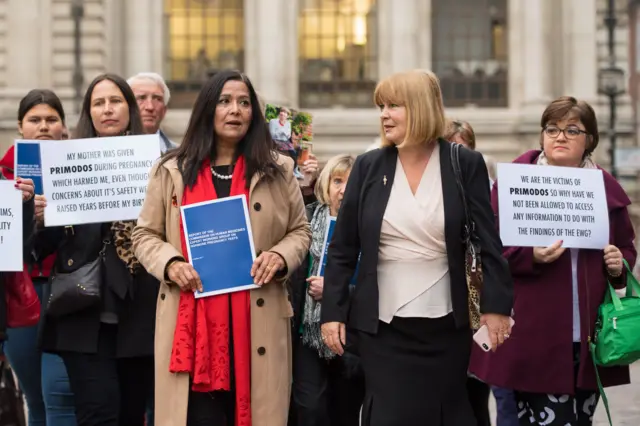 Image source, PA
Image source, PAYasmin Qureshi with hormone pregnancy test campaigners
Labour's Yasmin Qureshi, who has campaigned on this issue, says that a constituent contacting her about her poor health after her mother had taken the test during pregnancy.
Ms Qureshi says that in her research, she uncovered research by a doctor that in cases where the mother had taken the test, "there was a higher incidence of malformed babies, miscarriages, stillbirths and infant deaths".
His findings were so alarming that he wrote to the manufacturers, but she says it took another eight years before it was withdrawn from the market.
She says she has raised the issue in the House many times with the current and previous prime ministers. During the inquiry established in 2014, witnesses and affected people "were treated appallingly", she says.
She also tells the House an observer appointed to the inquiry was made to sign a gagging clause, meaning that she could not raise any concerns about the investigation.
Hormone pregnancy tests debate
 House of Commons
House of Commons
Parliament
Conservative Sir Mike Penning is opening the second of today's backbench debates, this time on hormone pregnancy tests.
He says that often these pills were taken in a GP's office, handed to them for free by drug companies. The tests became prevalent in the 1950s, 60s and 70s.
He says the Royal College of GPs had informed the Department for Health in the 1960s that they were then concerned about the drugs.
Sir Mike calls for an independent judge led inquiry to settle the matter.
He says that a previous scientific review into the matter misrepresented one of the witness's opinions and contributions to the evidence.
He says he wants to know why the drug company settled their lawsuit in America, and then "gagged everything".
Pensions equality for women debate
 House of Commons
House of Commons
Parliament
Shadow work and pensions secretary Debbie Abrahams calls on the government to work with the affected women to come to a good solution.
She says that life expectancy in people above 60 is decreasing.
Work and Pensions Minister Guy Opperman says that improvements in life expectancy are to be welcomed, but it "also brings enormous pressures".
In July, the government published its first review into the state pension age, and the government accepts the recommendations in the review which sees the pension age to be increased from 67 to 68 in 2039.
Mr Opperman says that Ms Abrahams is "scaremongering" about life expectancy, and says that according to the Office for National Statistics, life expectancy is increasing.
Pensions equality for women debate
 House of Commons
House of Commons
Parliament
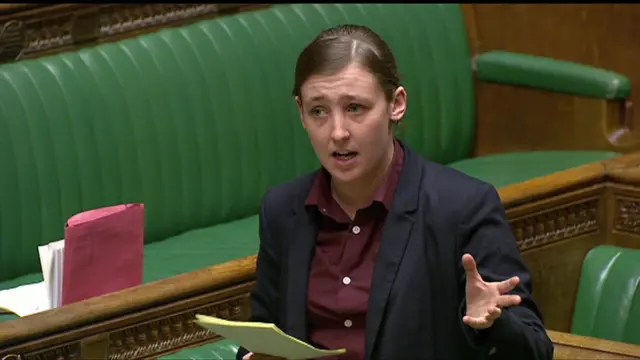 Image source, HoC
Image source, HoCThe government are "spinning in circles", says the SNP's pensions spokesperson Mhairi Black. She says that it's still refusing to acknowledge the problems that women face.
She criticises the fact that the onus is on women to contact the Department for Work and Pensions.
"We are trying to move society forward, and it's not going to get anywhere if the response is always, 'yeah, well we looked at that, it was rubbish, but let's move on'," she says.
She wants Parliamentarians to focus on how to fix the problem, rather than this "blame game," she says.
Pensions equality for women debate
 House of Commons
House of Commons
Parliament
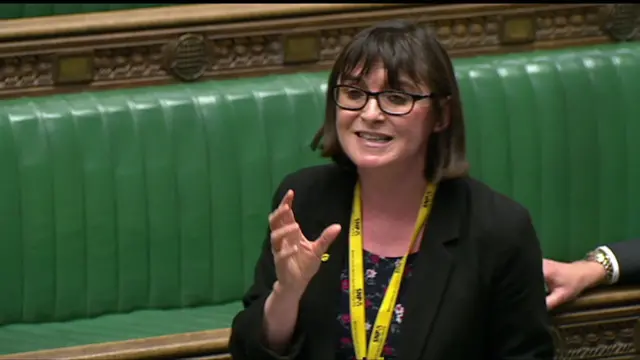 Image source, HoC
Image source, HoCThe SNP's Patricia Gibson tells the Commons she has struggled to frame her debate in terms that haven't already been used.
She says the life expectancy of women is not the issue today, she wants the minister to respond more on terms of how much notice was given to these women.
She says the minister has said "can we afford it," but she wants to say "we cannot afford not to afford it," she adds.
The social contract has been "torn up" by this government cruelly and callously, she says.
BBC Scotland editor tweets
Allow X content?
This article contains content provided by X. We ask for your permission before anything is loaded, as they may be using cookies and other technologies. You may want to read X’s cookie policy, external and privacy policy, external before accepting. To view this content choose ‘accept and continue’.
You can watch the announcements on the Scotland draft Budget unfold on our Holyrood Live page here.
Pensions equality for women debate
 House of Commons
House of Commons
Parliament
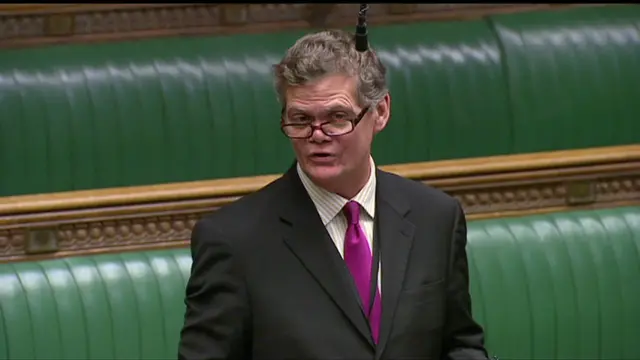 Image source, HoC
Image source, HoCLiberal Democrat Stephen Lloyd tells the Commons that all political parties are culpable and "have let women down".
"From 1995 to 2009, there was no communication at all," he says, this was 14 years in which the DWP could have told women and they could have prepared, he adds.
He says he believes the government should make available "a flat sum of transition money", and he makes a proposal, which he believes businesses would support, which is to delay the implementation of the corporation tax cut, which would raise the money to help WASPI women, he says.
He calls for a "proper vote" for the Commons on the issue, to resolve it.
Causes of poverty debate
 House of Lords
House of Lords
Parliament
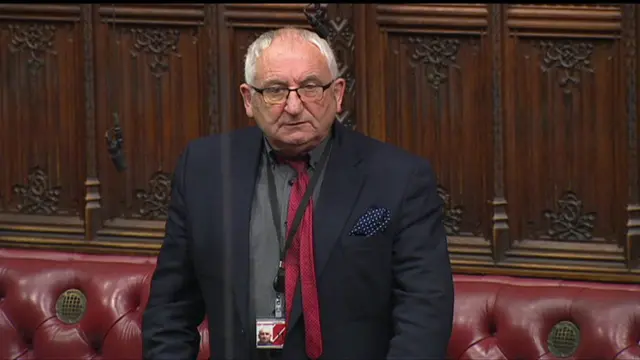 Image source, HoL
Image source, HoLCrossbencher and Big Issue founder Lord Bird is opening a debate on the root causes of poverty. He says it's fitting that this is taking place six months after Grenfell, as we need to "ensure the likes of Grenfell Tower never happen again".
He tells the House: "People in social housing should not be living in the third world."
He observes that "we like to hear stories about indomitable spirit of someone who does not accept poverty", noting: "My own family knew how to drink, smoke cigarettes and avoid paying the rent."
He says he's focused on "calling the bluff on poverty" as he believes there's a tendency towards "emergency-ism, where we spend lots of money on the problem once it's happened" and "we need a revolution to shake it up".
He concludes: "I don't read reports - I go into the street at 2am or 3am and talk to people," and he's convinced of the need to tackle "the poverty of the responses to poverty".
The Spectator tweets
Allow X content?
This article contains content provided by X. We ask for your permission before anything is loaded, as they may be using cookies and other technologies. You may want to read X’s cookie policy, external and privacy policy, external before accepting. To view this content choose ‘accept and continue’.
Background
 Reality Check
Reality Check
During the election, politicians were keen to pledge support for women born in the 1950s who have been angered by rises in the age at which they qualify for a state pension.
Millions of women have been caught up in government efforts to cut the mounting costs of paying for the state pension and to equalise the age at which men and women receive the state pension.
That effort goes back decades, so here is a little history.
The Sun's Westminster correspondent tweets
Allow X content?
This article contains content provided by X. We ask for your permission before anything is loaded, as they may be using cookies and other technologies. You may want to read X’s cookie policy, external and privacy policy, external before accepting. To view this content choose ‘accept and continue’.
Pension equality for women debate
 House of Commons
House of Commons
Parliament
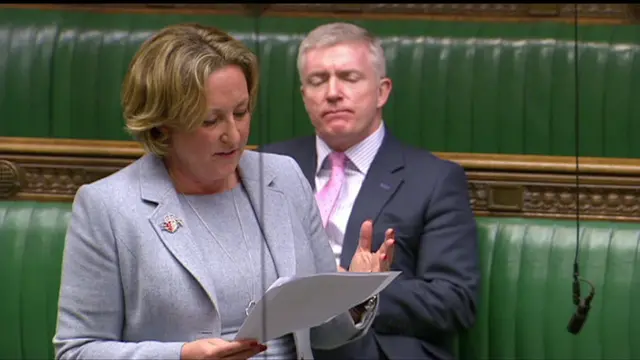 Image source, HoC
Image source, HoCConservative Anne-Marie Trevelyan tells the House that changes have been made "without enough time to prepare".
She says many of the women affected have worked all their lives, and now circumstances mean that, with ill-health in particular, they are struggling to survive on what they have.
These problems are exacerbated for people who live in rural areas, she adds.
She says listening to all the stories from women has been "beyond frustrating", and the Department for Work and Pensions is "unwilling to engage" with the All-Party Parliamentary Group on WASPI women.
David Davis was not in contempt of Parliament but some of his actions were "regrettable", says Speaker.
Read More